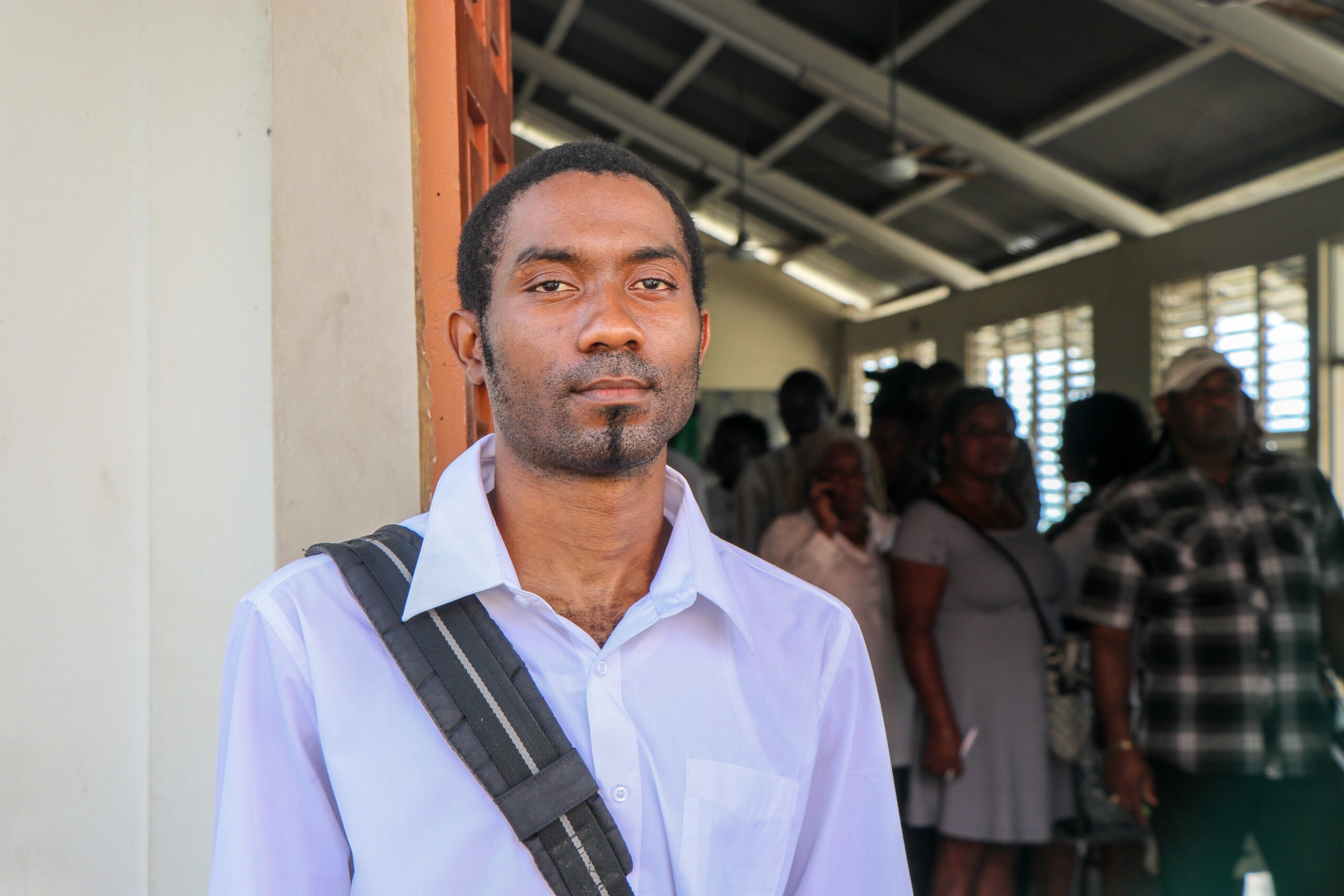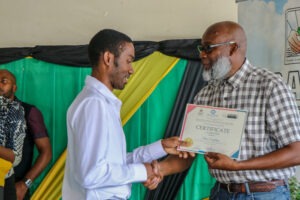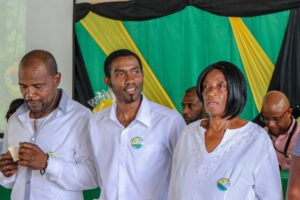
Oliver Creightney, 29, arrived at a church in Morant Bay in Jamaica’s St. Thomas Parish to mark his graduation from a Farmer Field School program. Oliver and his fellow Wilmington Farmer Field School group members celebrated their completion of a 10-week Farming as a Business course, provided through a Farmer Field School led by Jamaica’s Rural Agricultural Development Authority extension officers. These officers received a Training of Trainers from the Jamaica Rural Economy and Ecosystems Adapting to Climate Change II (Ja REEACH II) project to lead these schools and continue them in the future.
“It’s exciting to show that we spent time and effort to come to classes and learn all of these things.” –Oliver Creightney, 29, a Farming as Business graduate
The Ja REEACH II project, funded by the United States Agency for International Development and Jamaican government partners and implemented by ACDI/VOCA, is promoting the protection of rural livelihoods and ecosystems in Jamaica.
The Farmer Field School approach–started during Ja REEACH I–allows farmers to learn about new technologies and cultivation techniques through demonstration plots and workshops. The Ja REEACH II project expanded this approach to also include Farming as a Business curriculum.
Oliver, who cultivates peppers and coconuts on his land, learned business management skills, including record keeping, that allowed him to track spending and revenue. “It’s making sure you manage your farm and don’t lose,” he said. Without a record of income statements, many smallholder farmers in Jamaica struggle to receive loans and other financing from local banks.

“[Farmers] in general don’t keep records here,” Oliver said. “It’s more of a gambling situation.” In addition to loan eligibility, record keeping also helps smallholder farmers pinpoint when loses occurred. “If anything, [now] we know where we faltered and where in the season we faltered, so we see if there was a mistake in the first place,” Oliver said.
By reviewing his records, Oliver can see exactly how much he can invest in a crop and still profit from it. “All the folks before us, they worked every day, but they haven’t seen what they’ve gotten out of farming,” he said. Now Oliver views his profession as managing a small business.
“Younger generations like me haven’t seen that. They are thinking that farming is not going to make a profit. This class teaches us how to do it and make it possible.” –Oliver Creightney, 29, a Farming as a Business graduate
Young people, like Oliver, need better access to financing and markets to see the potential of agricultural work. As he continues to conduct record keeping and apply the business practices he learned, Oliver will improve his chances of securing loans and increasing his income. These financial literacy and business management skills will also better prepare him for the future. The Ja REEACH II project has empowered 120 trainers from five organizations to lead Farming as a Business courses, benefiting more than 195 farmers like Oliver.

“It has been a great experience, and I’m very happy it came to my community,” Oliver said. “If it wasn’t for that, there is a lot about business management I would not have known.”
Watch a video recapping the Farming as a Business training here and another after the graduation ceremony here.
Learn more about our Ja REEACH II project here.
Learn more about our work in Jamaica here.








